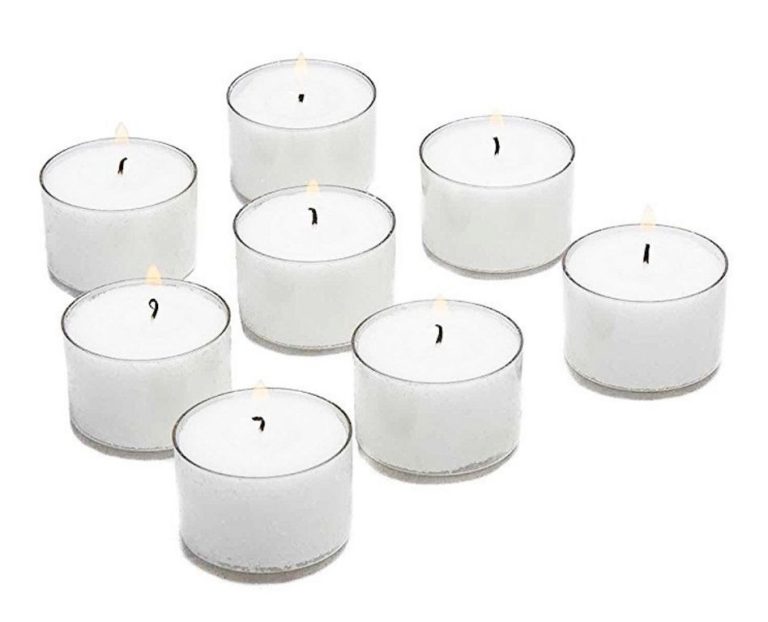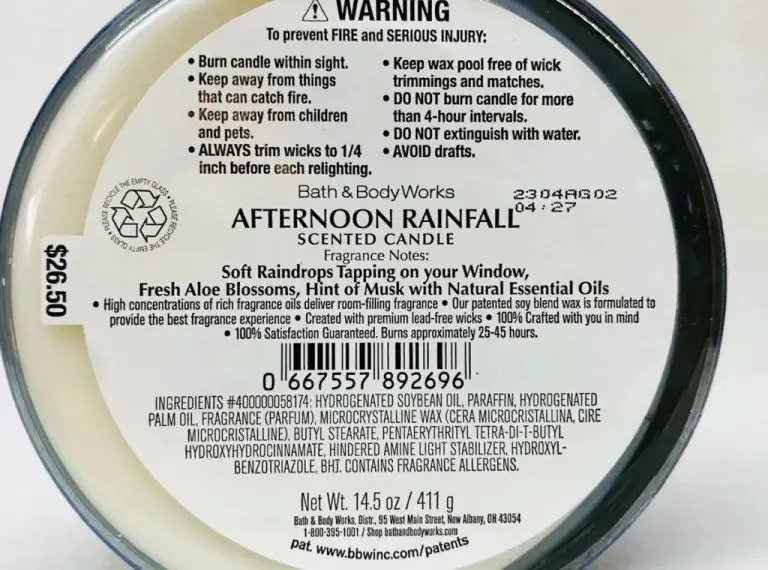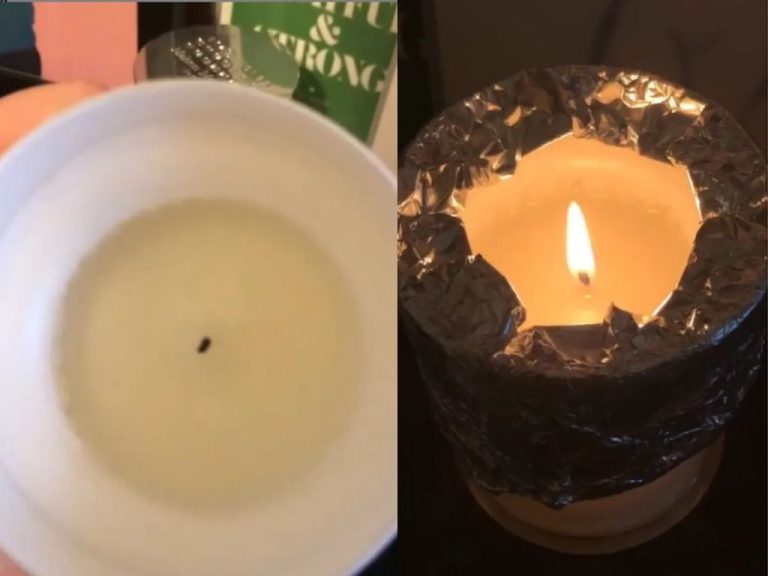Do Outdoor Candles Keep Bugs Away?
Spending time outdoors in the summer often means dealing with annoying insects like mosquitoes and flies. Many people rely on insect repellents, zappers, and other solutions to keep the bugs at bay. Outdoor candles have also become a popular option for repelling insects from yards, patios, and other outdoor spaces. But do candles actually keep bugs away?
The idea behind using candles is that certain scents will mask human smells and drive insects away. Citronella candles are commonly marketed as insect repellents, but other fragrances like lavender and eucalyptus are also said to deter bugs. However, there are mixed opinions on how well candles work compared to chemical bug sprays and whether factors like candle placement influence their effectiveness.
How Candles Work to Repel Bugs
Candles are able to help repel bugs due to the scented molecules that are released into the air when the candle is burning. As the candle wax melts from the flame, fragrant oils and other aroma compounds are vaporized and dispersed into the surrounding environment. These scent molecules can help mask human odors and carbon dioxide that would normally attract mosquitoes and other insects.
Mosquitoes are drawn to people by sensing carbon dioxide, body heat, and certain skin secretions. The strong scent from candles helps obscure these attractants, making the human scent trail more difficult for mosquitoes to follow. This disrupts their ability to zero in on a target host for blood meals. While candles may not repel bugs for a long distance, they can provide some protective benefit in the immediate vicinity by interfering with a mosquito’s senses.
Additionally, some candle scents contain essential oils like citronella, lemon eucalyptus, and lavender, which have natural insect repelling properties. As these aromatics diffuse into the airspace around the candle, they can deter bugs from approaching too closely. Positioning several candles around an outdoor living space creates an enveloping fragrance that makes the area less welcoming and appealing to mosquitoes and biting insects.
Citronella Candles
Citronella candles are the most common type of candle marketed as an insect repellent. The scent of citronella, a plant oil derived from lemongrass, is widely believed to repel mosquitoes and other bugs. Citronella candles have been sold commercially since the early 1900s for outdoor use at picnics, parties, and barbecues.
However, multiple scientific studies have found citronella candles ineffective at repelling mosquitoes in real-world conditions. In one study, citronella candles placed near adults and children outdoors reduced mosquito bites by an average of only 42% compared to unscented candles (Source). Other research found citronella candles provided only minutes of protection from mosquitoes after first lighting (Source).
While the smell of citronella may seem potent to humans, it does not effectively discourage mosquitoes from biting. The insect-repelling power of citronella candles is vastly overstated.
Do Citronella Candles Work?
Citronella candles have long been marketed as an effective way to repel mosquitoes and other biting insects. The characteristic citronella scent is believed to mask attractive human odors and deter bugs. However, studies on the effectiveness of citronella candles show mixed results.

One study from the University of Guelph in Canada found that citronella candles did not provide significant protection against mosquito bites. Researchers set up tents with volunteers inside who were subjected to varying numbers of mosquitoes. There was no noticeable difference in mosquito landings between tents with citronella candles burning versus unscented candles or no candles.
Another study published in Journal of Insect Science tested multiple citronella candle brands in an enclosed setting. They found citronella candles reduced mosquito bites by 42-61% compared to plain candles. However, protection did not reach 100% for any brand. The effects also diminished over time as the candles burned down.
Overall, while citronella candles may provide some repellent effects, they do not completely prevent mosquito bites. Their effectiveness can vary based on candle quality, airflow, and other environmental factors. More research is still needed on the exact mechanisms and reliability of citronella as an insect repellent.
Other Scented Candles
In addition to citronella, there are some other essential oils and scents that are thought to help deter insects when used in candles:
Lemongrass – The aroma of lemongrass is said to mask human smells that attract mosquitoes, helping keep them away (https://gyalabs.com/collections/insect-repellent). Lemongrass candles could provide some repellent effects.
Geranium – Like citronella and lemongrass, geranium oil is commonly recommended as an essential oil for repelling mosquitoes. Geranium scented candles may provide some bug repelling benefits (https://www.the-well.com/editorial/essential-oil-bug-repellent).
Lavender – Lavender oil smells pleasant to humans but can deter midges and mosquitoes. Burning lavender candles may help keep these bugs away from your space (https://www.mosquitosquad.com/blog/tips-prevention/essential-oils-mosquitoes/).
The effectiveness of other scented candles depends on the specific oils or fragrances used and other factors like placement and weather conditions. Overall, some scented candles do seem to have mild insect repelling properties if the right scents are used.
Effectiveness of Other Scents
Beyond citronella, there are other scented candles that some claim help repel insects. However, there is limited scientific evidence on how effective other scents are for this purpose.
Some anecdotal reports suggest that candles with lemon, lavender, peppermint, eucalyptus, and other natural fragrances may have mild bug repelling properties due to their strong smells. However, one study found that soy candles scented with lemon eucalyptus oil did not effectively repel mosquitoes (1).
The scents from these candles may mask human odors that attract bugs to some degree. But there is no conclusive research showing they work as well as candles containing oils from plants known for their insect repelling properties, like citronella (2).
Overall, scented candles with fragrances not specifically known to repel insects may provide some deterrent effects, but likely not to the same extent as citronella and related botanical oils. More research is needed on the bug repelling effectiveness of other scented candle varieties.
1. https://www.quora.com/Do-natural-fragrances-make-for-insect-repellants
2. https://www.quora.com/Is-it-possible-to-add-DEET-to-candles-If-so-what-concentrations-will-work
Candle Placement
Proper candle placement is crucial for optimizing their effectiveness at repelling mosquitoes and other bugs. According to research, candles should be positioned upwind from where people are gathering, so the breeze can carry the scent across the area (1). It’s also recommended to place candles around the perimeter of your outdoor space, rather than clustered in one spot. Spacing candles out allows the scent to cover a larger area (2).
For the best coverage, place candles every 10-15 feet around patios, porches, and other outdoor living spaces. Position them at table height or on steps and railings. Also, make sure no bushes, trees or other objects are blocking the candle scent from reaching your gathering area (1). With strategic placement to allow maximum airflow, you can create a “scent barrier” that helps repel mosquitoes and other annoying flying insects. This allows you to better enjoy your outdoor time bug-free!
Other Factors Impacting Effectiveness
There are several factors that can reduce the effectiveness of outdoor candles in repelling mosquitoes and other bugs:
Wind and Airflow – Wind can quickly disperse the scent molecules emitted by citronella and other scented candles before they reach mosquitoes. Situating candles in more sheltered areas can help, but airflow in general dilutes the concentration of scents.
Competing Scents – Other outdoor scents from plants, foods, garbage, perfumes etc. can overpower candle scents. The more competing aromas there are, the less likely mosquitoes are to be repelled.
Distance – Candles are only somewhat effective within a 3-6 feet radius. Further than that, scent concentration becomes too diluted to repel mosquitoes.
Maximizing candle effectiveness requires placing them very close to where people are sitting/standing, minimizing wind and airflow in the area, and eliminating other competing scents as much as possible.
Safety Considerations
When using candles outdoors, it’s important to take safety precautions to prevent fires or injuries. According to the U.S. Fire Administration, you should keep candles at least 12 inches away from anything that can burn, including plants, curtains, trees, etc. It’s also recommended to place candles on a sturdy, heat-resistant surface. Don’t put candles near areas where they could get knocked over by pets, children, or wind gusts.
The National Fire Protection Association advises to never leave burning candles unattended outdoors. It’s important to watch candles at all times and extinguish them before leaving the area or going to sleep. Consider placing candles in hurricane lamps or lanterns rather than leaving them exposed. Avoid positioning candles under trees, eaves, balconies, or near other flammable items. Check the weather forecast and avoid using candles outdoors on excessively windy days. Take care not to spill wax on surfaces like wood decks where it could ignite. Following basic safety precautions can help minimize risks when burning candles outside.
Conclusion
In summary, research seems to indicate that while citronella candles can help deter some insects when burnt outdoors, they are not very effective at repelling mosquitoes. Other scented candles like lavender, eucalyptus, and lemongrass may provide some repelling effects, but overall candles do not seem to be a reliable option for keeping bugs away outside. Their effectiveness depends on many factors like proper placement, wind conditions, and competing scents in the area. While they carry some benefits, candles should not be depended on as a primary deterrent against biting insects outdoors. Other more potent options like DEET sprays and wearing protective clothing tend to be more foolproof. Ultimately, candles can provide an added layer of defense against bugs, but likely should not be the only tactic employed. Their limitations in range, scent dispersion, and repelling power make them better suited as supplemental tools in an overall anti-bug strategy.






